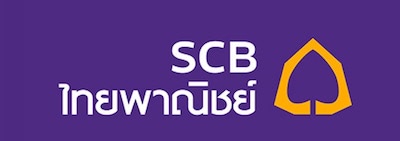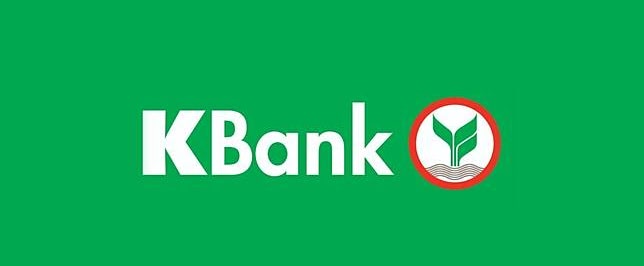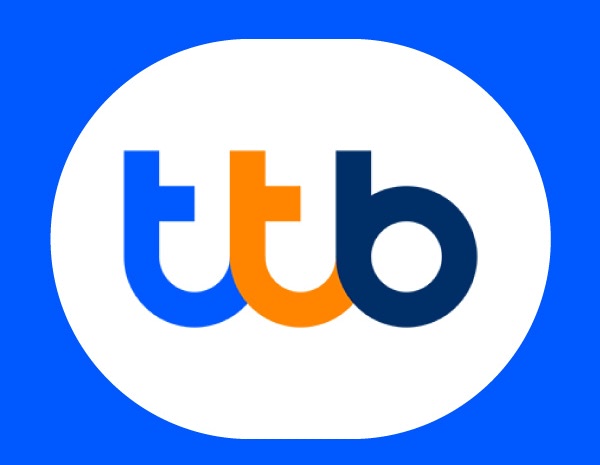Thailand is not only a country of amazing culture and nature, but also one of the leading economic centers of Southeast Asia with a stable financial system. If you are planning a long stay in the country - for work, study or investment in real estate - opening a bank account in Thailand will be an important step for effective financial management in the local currency (THB). Having an account simplifies everyday payments, allows you to comply with visa and investment legislation, and also facilitates comfortable business in the country.
Benefits of having a bank account in a bank in Thailand
No additional fees: With a local account, you avoid the high withdrawal or transfer fees associated with foreign accounts, as well as the risks associated with having your card blocked if unusual activity is suspected.
Direct Income Deposit: The ability to receive salary or pension payments directly into a Thai account provides quick access to your funds and eliminates the need for frequent visits to the bank.
Convenient access to cash with a debit card: A local debit card allows you to withdraw cash from ATMs nationwide without additional fees for transactions with foreign cards.
Functional online and mobile banking: With convenient apps, you can pay bills, transfer funds and manage your finances at any time, using QR codes for quick payments even in small shops and markets.
Meeting the requirements of long-term visa programs: Visas such as retirement or family visas may require a certain amount of money in a Thai bank account, making it an important element for long-term stays.
These benefits make doing business in Thailand much easier, providing convenience, security and cost savings in your day-to-day transactions.
Best Properties in Thailand
Who can open an account in a Thai bank
The possibility of opening an account depends on the status of the foreigner and the availability of the necessary documents. Below are the main categories and conditions for opening an account.
Long-term foreigners
This group includes foreigners planning to work, study at a university (not at a language school), invest in real estate or receive a pension in Thailand. As well as holders of long-term visas confirming their intention to stay in the country for an extended period.
Required documents and confirmations:
Passport with a valid long-term visa. This could be:
OA Visa (retirement visa for persons aged 50 years and over)
Investment visa (IB) for investors
B visa for working or doing business
Work permit (if available)
Proof of residence:
An electricity bill showing the name and address,
Lease agreement or property purchase documents.
Local phone number
Advantages:
Full access to banking services: debit card, online banking, direct deposit of salary or pension.
Compliance with the requirements for obtaining long-term visas (retirement, investment, business visas).
Foreigners on short-term visas
This includes foreigners attending language courses in Thailand. First of all, it is worth considering Bangkok Bank and Kasikornbank. Previously, opening an account was also available to ordinary tourists, but recently there are no official options for this category of guests of the country.
Required documents and confirmations:
Passport with tourist visa or entry stamp.
Residence Certificate: Issued by the Immigration Bureau upon submission of Form TM-30 (registration at the place of residence, for example, in a hotel or rented apartment).
Local phone number.
If available, a rental agreement for housing.
Insurance: Some banks require insurance (usually around 8,000 baht) to activate the account.
Peculiarities:
Account usage options may be limited compared to those available to long-term visa holders.
Lack of access to some online banking or debit card features may occur depending on the bank.
Good to know
A local SIM card is needed if you plan to activate mobile internet banking or pay for services online, since it is where transaction confirmation codes are sent. If you do not need such functions, you can register a foreign number. If you intend to use the card outside of Thailand, for example, for online payments, make sure that roaming is activated on the Thai number and that the balance is topped up for a long period (for example, for a year). Tourist SIM cards often do not provide this service, so in this case you should contact the operator and submit a corresponding application.
It is also worth noting that some banks may offer tourists to take out accident insurance. This is not a mandatory requirement, and you can refuse the insurance. However, without it, the bank may request a letter of recommendation from the consulate or from your current bank, sent via the SWIFT system.
Step-by-step procedure for opening a Thai bank account
Preparation of documents:
Collect the necessary documents: passport, residence certificate, letter of recommendation from the consulate and proof of residence (for example, a rental agreement).
Visit the immigration center in advance to obtain a residence certificate and arrange a date for a visit to the consulate to obtain a letter of recommendation.
Visit to the bank:
Contact the branch of the selected bank and fill out the client form.
Present the prepared package of documents to the bank employees.
Approval and account opening:
After reviewing the documents, the bank will approve your application and provide the details of the opened account.
Please note: For clients without a long-term visa, an account can only be opened in Thai baht.
Connecting online banking:
Activate access to mobile and online banking to simplify payment of services and account management via the Internet.
Issuing a bank card:
You will be issued an unnamed card immediately. Check with your bank to see if you can get a personalized card.
After approximately six months of use, it is possible to open an additional account in foreign currency, however, all transactions will be converted into Thai baht.
Good to know: Specific requirements for opening an account may vary from branch to branch, even within the same bank. Therefore, if you fail to open an account in one place, you can try your luck at the same bank, but in another office.
Estimated account maintenance costs
Below are some approximate figures to help you get an idea of the costs of maintaining a bank account in Thailand. Please note that each financial institution sets its own terms and conditions, and actual costs may vary:
Annual maintenance: approximately 600 THB (about 16 USD) per year.
Required deposit: about 500 THB (approx. 13 USD) to open an account.
Card issuance fee: about 100 THB (approximately 2.66 USD).
Bank insurance: Basic coverage starts from 225 THB (approximately 6 USD), and for maximum coverage the cost can reach 6000 THB (approximately 160 USD).
Additionally:
Transfers within Thailand: Generally free when using online apps.
Withdrawing cash from ATMs: Local ATMs usually have no fees, however, when using foreign cards, a fee of around 220 THB (approximately 6 USD) per transaction may apply.
International Transfers: Fees for international transfers can vary significantly. For example, some banks (such as Kasikorn Bank) charge a flat fee of around THB 500 for global transfers, plus additional fees (up to THB 1,200) to cover intermediary bank costs when using OUR mode, where all costs are paid by the sender. When using BEN mode, these fees are deducted from the transferred amount, reducing the amount received by the recipient. In addition, banks often use a marked-up exchange rate, which increases the final cost.
These rough figures will help you estimate the costs, but it is recommended that you check the rates and terms of the specific bank for accurate information.
Which bank to choose in Thailand to open an account
Choosing a bank in Thailand is a complex matter. There are more than 44 financial institutions in the country, but it is worth paying special attention to the largest players. When choosing a bank, it is important to consider factors such as the availability of branches and ATMs near your home, workplace or places you regularly visit, as well as the quality of service, including the level of English proficiency of the staff. In addition, important criteria include the functionality of mobile banking, the terms of using a debit card for online purchases and international transfers, as well as document requirements and service fees. Below, we will look at the main banks that are most often chosen by foreigners and give a brief comparison of their key features.
Bangkok Bank
- Brand color: Dark blue
- Website: https://www.bangkokbank.com

Bangkok Bank is the largest bank in Thailand with over 1,200 branches and a network of over 10,000 ATMs across the country, as well as over 20 branches abroad. With a wide range of services for expats, this bank is considered one of the best options for foreigners. However, it is worth considering that the requirements for opening an account may vary even between branches of the same bank, which sometimes creates difficulties when preparing documents.
The convenient digital service “Bualuang” in the form of internet banking and mobile application provides easy access to services. In addition to standard operations, Bangkok Bank offers services in loan processing, investment, property sales, currency exchange and insurance, including life, medical, automobile and property insurance.
| Advantages | Flaws |
|---|---|
|
|
Siam Commercial Bank (SCB)
Brand Color: Purple
Website : https://www.scb.co.th/

Siam Commercial Bank, commonly known as SCB, is one of the oldest domestic banks in Thailand, having opened around 1907. It pioneered the use of ATMs, introducing them in 1983, and today has over 9,000 ATMs and over 1,100 branches, including overseas offices in seven neighboring countries.
Despite the planned closure of some branches due to the transition to digital banking, SCB remains an attractive choice for foreigners: non-residents can open an account with just a passport and a minimum deposit. The bank offers a wide range of services, including international transfers, loans, credit cards, investment and property services, as well as a variety of insurance policies covering life, health, travel, cars and property.
| Advantages | Flaws |
|---|---|
|
|
Kasikornbank (KBank)
Brand color: Green
Website: https://www.kasikornbank.com

Kasikornbank is the second most convenient bank for foreigners and has a wide presence across the country, with over 1,000 branches and just under 10,000 ATMs in Thailand, as well as five overseas branches. The bank offers a wide range of foreign exchange services, including the ability to make international transfers via a mobile app.
Launched in 2011, Kasikornbank is one of the most advanced and secure apps, making it a leader in mobile banking. The bank was also the first to issue credit cards (in 1973) and became an escrow agent for real estate transactions.
Kasikornbank is easy to open an account with, with customers reporting that they can open a savings account with just a copy of their passport and a student, marriage or work permit. The standard package includes a debit card suitable for online shopping, as well as the option of a checkbook. The bank also offers various types of insurance, although the choice of insurance products is limited.
| Advantages | Flaws |
|---|---|
|
|
Krungsri Bank (Bank of Ayudhya)
Brand color: Yellow
Website: https://www.krungsri.com

Krungsri Bank, also known as Bank of Ayudhya, is one of the best banks in Thailand for foreigners due to its range of useful services. Its mobile app stands out for its functionality: it allows you to withdraw cash without a physical card, make purchases using QR codes, and perform other banking operations. However, the bank’s branch network is not very wide - there are only about 700 branches in Thailand, plus 3 overseas, and about 6,200 ATMs.
When opening an account with Krungsri, the bank may require more documentation than other banks. You may need proof of address (such as a long-term lease for at least a year or house registration documents) and, if you are in Thailand on a marriage visa, proof of your marital status.
Once an account is opened, Krungsri offers a range of convenient features, including international money transfers via Western Union or SWIFT, and a debit card suitable for online shopping. In addition to basic banking services, the bank provides loans, investment and insurance products – life insurance, pension, health, car and property. Of particular note is the policy to protect your mobile phone from accidents and theft, which underlines the bank’s commitment to mobile banking.
| Advantages | Flaws |
|---|---|
|
|
TTB Bank
- Website: https://www.ttbbank.com/

In 2020, TMB Bank and Thanachart Bank merged to create TTB Bank, a new brand that combines the strengths of both companies. The bank offers a full range of retail and corporate services focused on customer convenience and efficiency. Services include standard account types (savings, current, deposit, foreign exchange accounts), modern online solutions and a wide range of financial products.
| Advantages | Flaws |
|---|---|
|
|
CIMB Bank
- Brand color: Red
- Website: https://www.cimbthai.com/

CIMB Bank is one of the largest banks in Malaysia, ranking around 10th in Thailand, with around 150 branches and 530 ATMs. The bank offers Islamic banking services and international money transfers via SWIFT and MoneyGram. However, digital and online banking options remain basic, and the debit card cannot be used for online shopping. However, CIMB offers a fairly wide range of insurance policies, especially in the life insurance segment, as well as home and car insurance options.
| Advantages | Flaws |
|---|---|
|
|
UOB Bank
- Brand color: Dark blue
- Website: https://www.uob.co.th/

UOB Bank is an international bank with just over 150 branches in Thailand, headquartered in Bangkok (Robot Building). The bank is aimed at high-net-worth clients: to open a basic savings account, foreigners need an initial deposit of around THB 50,000, a passport, a Thai phone number and, if applicable, a work permit. UOB provides international money transfers via Western Union and SWIFT, and their online services and mobile app are modern in design and feature advanced features. However, the choice of insurance products remains very limited.
| Advantages | Flaws |
|---|---|
|
|
CitiBank
- Brand color: Light blue
- Website: https://www.citigroup.com/

CitiBank is the largest foreign bank in Thailand by assets, and is part of the American Citigroup. The bank is known for its credit card, which is linked to the frequent flyer program of Thai Airways (Royal Orchid Plus), allowing you to accumulate airline miles. Despite its huge assets, the number of CitiBank branches in Thailand is small - just over 30. A standard savings account can be opened using a passport and a work permit, and a bonus is the ability to withdraw cash without a fee from CitiBank ATMs around the world. CitiBank also offers a wide range of services, including international transfers, loans and investments, but does not offer insurance products.
| Advantages | Flaws |
|---|---|
|
|
Tips for Opening a Bank Account in Thailand for Foreigners
If you are planning to open an account in a Thai bank, please pay attention to the following recommendations:
Research bank offers: Research the account features of different banks, such as ATM availability, international transfer fees, mobile banking options, and the types of accounts available. Reviews from other expats can help you make an informed choice.
Prepare the necessary documents in advance: Check the list of required documents on the bank’s website or ask at the branch. This may include a passport, proof of residence, visa and possibly a work permit.
Plan your bank visit: Most Thai banks are open from 10:30am to 4:00pm, so it’s best to visit branches early in the day or just after lunch to avoid queues. Also consider local holidays and weekends.
Bring a helper: If you don’t speak Thai well enough, bring a friend or use an online translator to prepare key phrases. This will make it much easier to communicate with bank employees.
Prepare for your first deposit: Many banks require a minimum deposit when opening an account. Make sure you have the required amount to avoid delays in opening your account.
Evaluate the possibilities of online banking: If convenience, low fees and access to services from anywhere in the world are important to you, pay attention to banks that offer high-quality digital services.








































































































